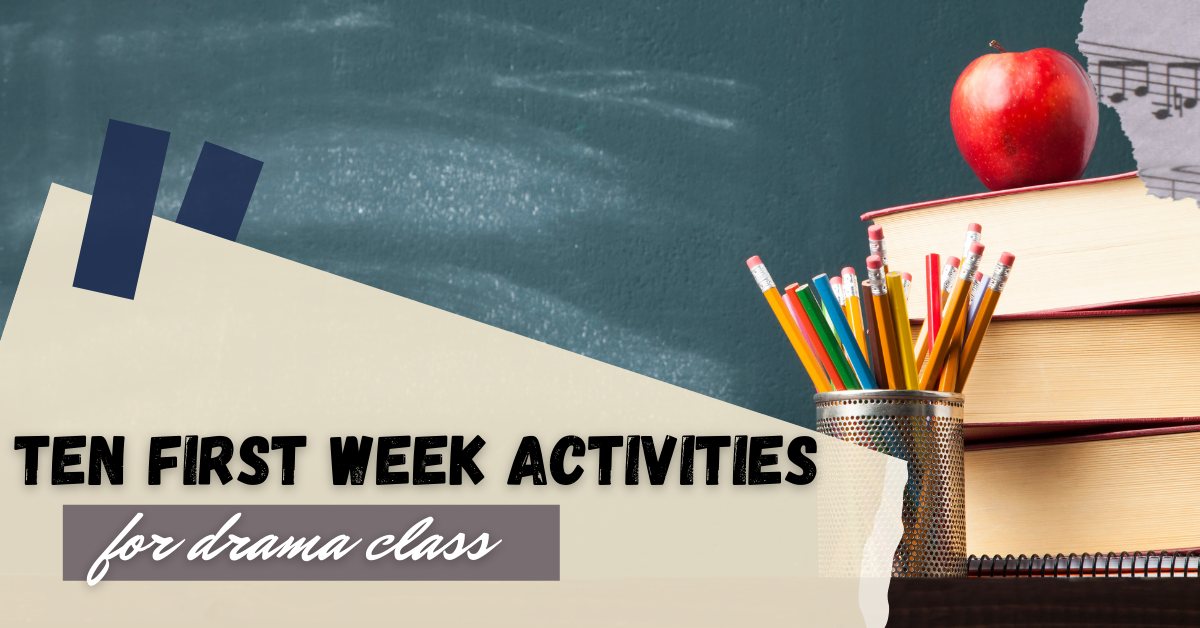Theatrical New Year’s Resolutions for Teachers
It’s a new year and a fresh start!
If you’ve been teaching the same classes for a long time, your curriculum might be feeling a bit stale. Yes, it’s always going to be different when you teach it to new students, but it’s always good to mix things up and add to your repertoire. You’re always encouraging your students to reach out and learn more about their interests, right? Well, take a page out of your own book and learn something new too! You’ll feel refreshed and rejuvenated, and you’ll have something new and exciting to share with your students.
Below are eight different theatrical New Year’s resolutions for you to explore. Look them over to see which ones appeal to you, then get out there and complete them. Notice which ones don’t immediately appeal to you, or make you pause and consider. Push yourself out of your comfort zone and challenge yourself to do those resolutions too!
Reading & Research
1. Read five new plays. It’s always good to expand your repertoire of plays and musicals. You may find great pieces to use for your upcoming class or school production. Also, consider individual scenes and monologues that your students could use in classroom exercises or for audition purposes. (While you’re at it, why not start a binder full of monologues that students could peruse? You can start here!
2. Read three new theatre-related books. There are tons out there, from biographies to non-fiction and everything in between. Two books I recently enjoyed were Theater Geek: The Real Life Drama of a Summer at Stagedoor Manor by Mickey Rapkin and Drama High by Michael Sokolove.
3. Learn five new theatrical techniques/games. Tired of playing Park Bench over and over? Me too. Here are a whole bunch of fun games to try.
And why not explore new theatrical topics to add to your teaching repertoire? For example, this year I taught mask work for the first time in my class. Although I was really nervous about it, my students really enjoyed learning something new and exploring it with me. It might inspire some new work or start some interesting discussions.
4. See five new shows for inspiration. I frequently tell my students to see as many shows as possible, to open their minds to new and varied interpretations of various works, and to learn more about different shows. As the teacher, that is doubly true for us! Get out and see some shows, whether they’re at other schools (maybe you can plan a field trip for your students), in the community, at professional theatres, or in cities you visit while traveling! On a recent trip to Pittsburgh, I saw The Toxic Avenger musical while my husband caught a Steelers game. It was such a fun show, and inspired my stage combat choreography for a production of She Kills Monsters with my students!
Reaching Out & Getting Involved
5. Reach out to three colleagues in your city or district. Are you connected with other drama teachers in your area? Send them an email and get together with them! Other teachers can be great resources for sharing lesson plans and classroom management tips, creating connections for sharing production resources (props, costumes, set pieces), and fostering friendships!
6. Reach out to three theatre people from your social media community. Get on Facebook and Twitter, use those #theatrehashtags, and see what interesting people you find! Reach out and send them a message, ask a question, form a friendship! Who knows what fun connections are out there for you!
7. Attend a conference or festival. Get your travel on and meet with drama educators and theatre professionals in one fell swoop! There are lots of conferences and festivals available, like the World Festival of Children’s Theatre, iTheatrics’ Junior Theater Festival, and many state/province festivals. Search for conferences with workshops specifically for teachers.
8. Get involved in a community theatre show. When was the last time you worked on a show that wasn’t related to school–purely for your own enjoyment? Get out and audition for a show or volunteer backstage! Share your experiences with your students, and invite them to come see your work outside of the classroom!



